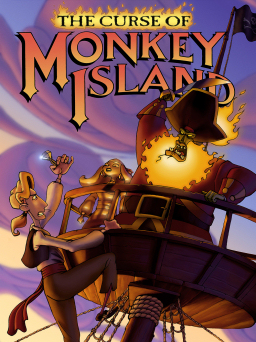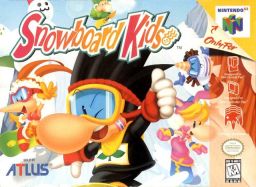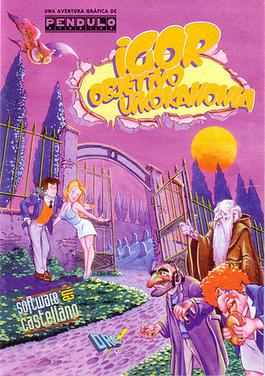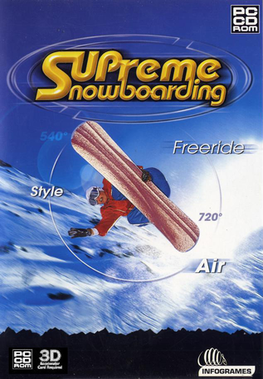
Unreal is a first-person shooter video game developed by Epic MegaGames and Digital Extremes and published by GT Interactive for Microsoft Windows in May 1998. It was powered by Unreal Engine, an original game engine. The game reached sales of 1.5 million units by 2002.

Final Fantasy VII is a 1997 role-playing video game developed by Square for the PlayStation. The seventh main installment in the Final Fantasy series, it was released in Japan by Square and internationally by Sony Computer Entertainment, becoming the first game in the main series to have a PAL release. The game's story follows Cloud Strife, a mercenary who joins an eco-terrorist organization to stop a world-controlling megacorporation from using the planet's life essence as an energy source. Ensuing events send Cloud and his allies in pursuit of Sephiroth, a superhuman who seeks to wound the planet and harness its healing power in order to be reborn as a god. Throughout their journey, Cloud bonds with his party members, including Aerith Gainsborough, who holds the secret to saving their world.

The Curse of Monkey Island is an adventure game developed and published by LucasArts in 1997. A sequel to 1991's Monkey Island 2: LeChuck's Revenge, it is the third game in the Monkey Island series.

Icewind Dale is a role-playing video game developed by Black Isle Studios and originally published by Interplay Entertainment for Windows in 2000 and by MacPlay for the Macintosh in 2002. The game takes place in the Dungeons & Dragons Forgotten Realms campaign setting and the region of Icewind Dale, and uses the 2nd edition ruleset. The story follows a different set of events than those of R. A. Salvatore's The Icewind Dale Trilogy novels: in the game, an adventuring party becomes enlisted as a caravan guard while in Icewind Dale, in the wake of strange events, and eventually discover a plot that threatens the Ten Towns of Icewind Dale and beyond.

GamePro was an American multiplatform video game magazine media company that published online and print content covering the video game industry, video game hardware and video game software. The magazine featured content on various video game consoles, personal computers and mobile devices. GamePro Media properties included GamePro magazine and their website. The company was also a part subsidiary of the privately held International Data Group (IDG), a media, events and research technology group. The magazine and its parent publication printing the magazine went defunct in 2011, but is outlasted by Gamepro.com.

1080° Snowboarding is a snowboarding video game developed and published by Nintendo for the Nintendo 64 in 1998. In the game, players control one of five snowboarders from a third-person perspective, using a combination of buttons to jump and perform tricks across eight levels.

1080° Avalanche is a snowboarding video game developed by Nintendo Software Technology and published by Nintendo for the GameCube. It was released on November 28, 2003, in Europe, on December 1, 2003, in North America, and on January 22, 2004, in Japan. Avalanche is a sequel to the 1998 video game 1080° Snowboarding for the Nintendo 64.

Nintendo Software Technology Corporation, doing business as Nintendo Software Technology (NST), is an American video game developer. NST was created by Nintendo as a first-party developer to create games for the North American market, though their games have also been released worldwide. The company was founded by Minoru Arakawa, Claude Comair and Scott Tsumura in 1998 and is located inside of Nintendo of America's headquarters in Redmond, Washington.

Snowboard Kids, is a snowboarding video game for the Nintendo 64. It was developed by Racdym and published by Atlus. Many reviewers compared its style to that of the Mario Kart series. An enhanced port, Snowboard Kids Plus, was released in Japan in January 1999 for the PlayStation.

Marca, stylised as MARCA, is Spain's national daily tabloid sport newspaper owned by Unidad Editorial. The newspaper focuses primarily on football, in particular the day-to-day activities of Real Madrid, FC Barcelona, and Atlético Madrid. It has a daily readership of over 2.5 million, the highest in Spain for a daily newspaper, and more than half of Spain's total sports readership, as of 2007.

Operation Body Count is a 1994 first-person shooter that uses the Wolfenstein 3D engine. It was developed and published by Capstone Software.

Twisted Edge Extreme Snowboarding, released as Twisted Edge Snowboarding in Europe, is an extreme sports video game developed by Boss Game Studio and published by Midway in North America and by Kemco in Japan and Europe for the Nintendo 64.

Backcountry snowboarding is snowboarding in a sparsely inhabited rural region over ungroomed and unmarked slopes or pistes in the backcountry, frequently amongst trees, usually in pursuit of fresh fallen snow, known as powder. Often, the land and the snow pack are not monitored, patrolled, or maintained. Fixed mechanical means of ascent such as ski lifts are typically not present, but alternative means such as splitboarding, hiking, snowshoeing and helicopters ("heliskiing") are sometimes used to reach the mountain's peak.

My Family's Got Guts is a family game show that aired on Nickelodeon. It was a revival of Guts, and aired from September 15 to September 27, 2008. The show was taped in Sound Stages 23 and 24 at Universal Studios Florida, housing the Extreme Arena and the Aggro Crag, respectively. Stage 21, where the original Guts program taped, was most recently occupied by production of Impact Wrestling. This version is hosted by Ben Lyons and officiated by Australian celebrity Asha Kuerten. It was the first Nickelodeon production to be produced at Universal Studios Florida since the closing of Nickelodeon Studios in 2005. For unknown reasons, season 2 never aired in North America. However, the season would air in its entirety in other countries.

Hollywood Monsters is a 1997 graphic adventure game developed by the Spanish company Pendulo Studios and published by Dinamic Multimedia. It takes place in an alternate-history 1950s, where the creatures from Golden Age monster movies are played by real monsters who lead otherwise normal lives. Controlling reporters Sue Bergman and Ron Ashman, the player seeks to unravel a mystery surrounding the murder of Frankenstein's monster. In the process, the player undertakes a globetrotting journey to locations like Transylvania and Egypt, while solving puzzles and interacting with characters such as Count Dracula, the Invisible Man and the Mummy.

Igor: Objective Uikokahonia is a 1994 graphic adventure game developed by the Spanish company Pendulo Studios and published by DROsoft. The game tells the story of Igor Parker, a university student in love with a classmate named Laura Wright. Hoping to win her affection, Igor surmounts a series of obstacles in an effort to join her on a field trip to the island paradise of Uikokahonia. The player assumes the role of Igor and navigates the campus while collecting items, solving puzzles and conversing with non-player characters.

Supreme Snowboarding is a snowboarding video game created by Housemarque for Microsoft Windows with a Game Boy Color version by Software Creations in 1999. It was one of the first snowboarding games for Windows to take full advantage of 3D graphics cards that were becoming the norm in the late 1990s. Over 1.5 million units were sold worldwide, allowing Supreme Snowboarding to become the first hit title in Finnish game development. The game received positive critical reception, as well as acclaim for having one of the best visuals of its time, though its lack of content and replay value was sometimes criticized.

Monopoly is a 1995 video game based on the board game Monopoly. It was developed by Westwood Studios, published by Hasbro Electronic Entertainment and distributed by Virgin Interactive Entertainment. This title was one of many inspired by the property. It was later reissued in 1998 with different box art. The game included an original soundtrack composed by Frank Klepacki.

War Along the Mohawk, known in Europe as Fields of Fire: War Along the Mohawk, is a 1998 strategy video game developed by Edward Grabowski Communications and published by Empire Interactive Entertainment.
The history of video gaming in Spain dates back to the 1970s, and by 2014 the country was the 10th-highest-grossing market for video games worldwide. In 2018, the Spanish video game market posted a revenue of €1.53 billion, up from €1.35 billion in 2017. The country's audience of game players was 16.8 million that year; demographically, it was 59% male and 41% female. Reportedly 80% of people aged 6-to-10 played video games, while 24% of those in the 45–64 age range did so.



















